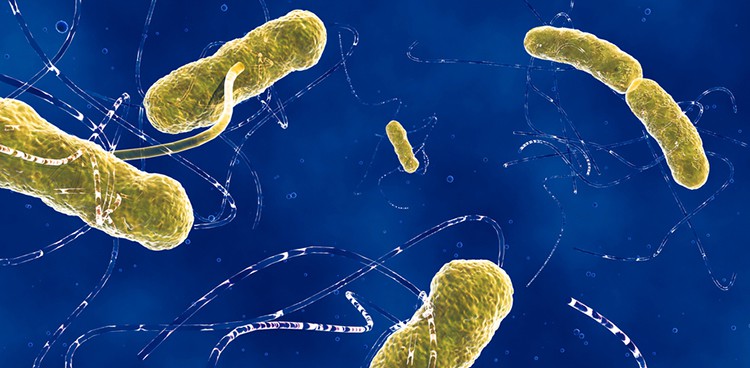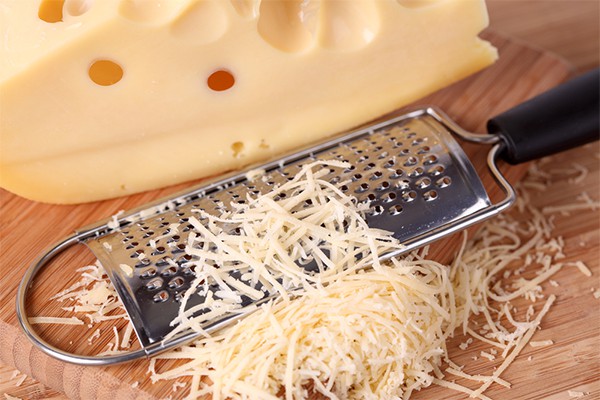
By now, I’m sure you’ve heard all the hubbub about the benefits of probiotics in maintaining a healthy gut. Some folks are going so far as to send samples of their, well, was-food to labs in order to test the levels of different types of gut bacteria in their intestines. (If you’re interested, Andrew Anthony tells you all you wanted to know—and most likely way more—about his experience doing so.)
Probiotics? Gut health? What is all of this sciencey stuff I just hit you with so early this morning?
Healthy bacteria. Germs. Michael Pollan’s “best friends.” This scientific article calls gut flora the “forgotten organ.” You’ve seen those Activia commercials, or maybe you’ve purchased juices or probiotic supplements that promise digestive health and bowel regularity. These products all tout the good juju that healthy, live bacteria give to your intestines.
Let’s think for a minute that inside your body—your multi-layered, complex, blood-and-guts-filled body with synapses and neurons firing at rapid speeds, and thoughts, emotions, and feelings constantly changing throughout each day—hundreds, nay, thousands of other bodies (ok, technically microorganisms, but still…) are hanging out, lounging, settin’ up shop in the dank, wet, dark places you call your large and small intestines. And they love it. These little microorganisms send postcards to all their friends that say “Wish you were here… oh wait, you are!” Your intestines are a gut flora Disneyland. These microorganisms trade this life of intestinal luxury in return for helping keep your digestive system healthy, breaking down super fibrous foods, and keeping your immune system functioning at optimum levels. They can also improve the digestion and absorption of nutrients from all of those fruits and vegetables *cough french fries and Coke cough* you consume on a daily basis. This whole microscopic bodies-inside-your-body thing is scientifically called the “microbiome,” and researchers are constantly trying to understand what makes these healthy bacteria flourish and thrive.
Good news—a recent study points to cheese as a possible gut flora proliferator! (Turns out we’re not the only ones cheered up by cheese.) That’s right. There’s a party in your gut, and it wants more cheese.

Photo Credit: “Grated cheese and grater…” by StepanPopov | Shutterstock
An article from Medical Daily reports that researchers from Aarhus University and the University of Copenhagen suggest that “cottage cheeses and soft fermented cheeses like Gouda, some cheddars, and parmesan are all often packed with probiotics,” the good stuff that feeds your gut bacteria (think “pro” meaning “for” and “biotic” like “biome”).
Thriving gut flora may also help in improving weight loss and keeping the weight off, so say proponents of what’s been called the French Paradox a.k.a. why French women don’t get fat a.k.a. why can’t I eat a chocolate croissant for breakfast every morning, too, and not gain an ounce. This “paradox” is named as such because of the diet so commonly practiced by the French and many other European countries includes, among vegetables, fruits, and a healthy dose of physical activity, high-fat cheeses.
And the French don’t just eat cheese. They eat a yearly average of fifty-seven pounds of cheese per person. That’s a lot of cheese, and subsequently a lot of health-inducing probiotics. And researchers believe that cheese has something to do with the low rates of cardiovascular disease, diabetes, and obesity common among the French. Even McDonald’s in France seems to exude this eating lifestyle. Hence the paradox: high-fat diet, but not high-fat people.
But before you run to your nearest cheese counter or stock up on packages of Kraft Singles (the cheese we Americans all love to hate… or hate to love. Or love to love), ponder this. The type of cheese may matter just as much as the moderate consumption of it. One of many famous French cheeses, Roquefort, contains beneficial anti-inflammatory properties in its signature moldy blue veins. You can’t say the same about the slices of orange processed American cheese you picked up from the deli case.
There is much on the topic of probiotics and gut bacteria, and even information about whether or not it can make us fat or thin, or if our exposure to certain bacteria while in the womb predisposes us to a life of slenderness or obesity. Cheese is just the latest food item to be added to the probiotic containing list.
Need to take some time to… wait for it… digest this information? We’ve got just the project for you while you do: a DIY recipe for cottage cheese. Because we can’t let the French have all the fun. Here’s to your (gut) health!
Feature Photo Credit: “EHEC Bakterien / EHEC bacteria” by Juan Gaertner | Shutterstock



